Says Educationist Dr. K.P. Gopalkrishna, Chairman & Founder-Principal, NPS Group of Institutions
By N. Niranjan Nikam
[Continued from yesterday]
SOM: You are running nine schools including the one in Mysuru, Chennai and Singapore. What is the mantra?
K.P. Gopalkrishna: At present we have stopped all the expansions even though many entrepreneurs are approaching us to give the consultancy to them. Because of too much of rules which they have framed, State has to give recognition, affiliation and NoCs. Fulfilling all these conditions is a Herculean task. (However, in NPS International, Singapore, we have complete autonomy). Therefore, we do not know where our directions for a good education system are. Again language issue is there. Now, in States like Kerala or Tamil Nadu or Karnataka they have imposed language study and made it compulsory. Bengaluru being a global city, people are asking, I am here for three or four years, I am then getting out of Bengaluru. If you impose the language, what am I to do? Therefore, I will go to some other place. This is again negatively affecting our system of education which has to be more liberal. However, the present Chief Minister has declared that 1,000 English Medium Schools are going to be started, it is a very good move.
SOM: Right To Education (RTE) is a concept promoted by the Government to see that children from poorer sections also have an opportunity to study in elite schools. What is your view?
K.P. Gopalkrishna: My view of RTE is very complex. I will say that the intention of that law enacted by Kapil Sibal without giving an opportunity in the Parliament for discussion, it is good that underprivileged children are getting education in good private institutions. However, this directly shows the failure of government institutions. And when I talk about government institutions, the best teachers are in Government Schools, as they are well-educated and are recruited by various norms by Public Service Commission. In spite of these qualified young teachers in Government Schools, I always think why they are not progressing. I have one answer and that is: the poorest infrastructure.
When these young teachers go to Government Schools, they have lot of vision, ambition to do something. But after going to these institutions, they don’t find the classrooms, good furniture, toilets for girls and boys, they don’t find playground (occupied by all others). This has probably resulted in the failure of Government institutions and encouraging private ones. But still I have to say that the primary school teachers in private schools are not the good ones but secondary ones.
Therefore, coming further, RTE is being controlled by the activists. Activism is a new profession coming to India. As our Chief Minister put it in the Assembly, ‘this is all bogus.’ And the Government is spending for all the Government and aided schools and again they are spending huge money for RTE students, which is about Rs. 1,200 crore in Karnataka. Where do they find the money? And, again, there is lot of unethical practices at the admission stage. Therefore, it is a failure.
Any country to improve, the private talents are required to be successful. For example, when our IT was opened, that sector could progress very well. This is a typical example where decontrolling everything leads to progress because the controls in education system is crippling the whole aspects of education. And who are getting seats in the RTE, it is not the underprivileged children. They are coming under the Rs. 8 lakh category, which was always there earlier. How could you consider persons getting Rs. 8 lakh as underprivileged? That is my question. This is what happens in our society. Most of the RTE students’ parents are bringing them on motorcycles and cars to schools. Only the rich is benefited again, not the real underprivileged. Another aspect is that in private schools there is social incompatibility among these two groups.
SOM: But that was the purpose of RTE to bring these two groups together.
K.P. Gopalkrishna: But it will not work. The government, like in America and UK, should give the best education as they are spending for it. Why do they want to give Rs.1,200 crore to RTE students, the same amount could be used to improve Government Schools’ infrastructure.
SOM: One of the challenges faced by all Schools is the retaining of teachers especially because there are so many schools that are mushrooming. How do you manage this challenge?
K.P. Gopalkrishna: There is shortage of teachers not only in India but all over the world. Good talents are going for engineering, medicine, management and all that. You are aware that they get a better package of salary. What do teachers get? When I started the school in 1959, the primary school teacher’s salary was Rs.67 and high school was Rs.93. Today the Government Schools salary starts with Rs.20,000, the high school about Rs.35,000, PUC good, may be about Rs.80,000. The doctors and IT group, they are much higher to start with. I call the teachers’ salary peanuts. Therefore, we are not attracting good talents. Everywhere rejected people are taking up the teachers’ positions. This is one of the reasons of failure of education in not getting teachers. But we are trying to change. The Seventh Pay Commission has made the salary-level attractive. They get about Rs. 7 lakh per annum today.
Today, every street within a distance of two kms has two schools on either side of the footpath. There are a thousand houses in the vicinity and at least there will be 30 per cent school-going children in them for whom you need a school. This factor everybody is forgetting. Unless the private enterprises come into education sector but now they are very reluctant after the RTE, hence it has to be relaxed. Because there is some corruption in private institutions, you cannot take it that every private institution is corrupt. Is corruption not there in the Government Department at every level?
SOM: Spare the rod and spoil the child is the old English maxim which these days does not or cannot work. How strict should one be with the children, especially during the adolescent years as all senses and sensibilities are developing at this stage?
K.P. Gopalkrishna: With the technology children are becoming more and more aware of their life, of their right. When that is the case these punishments are not accepted. And it is for the teachers to develop techniques to have good counselling and make them realise their responsibilities that will help. That is the only thing we can do. Otherwise the Education Act prohibits the corporal punishment and teachers will go to jail. Therefore, they go to the class, teach and come away. They do not want to take any initiative. I strongly feel that sometimes a bit of punishment is required to make the students realise what they have done is wrong, it is a mistake, a ‘positive punishment’ I call it.
SOM: Having set up the school in the cultural capital of the State, what has been your experience in Mysuru?
K.P. Gopalkrishna: I am extremely happy I could give an insight to other institutions as to how NPS is working.
SOM: How many years since NPS was set up here?
K.P. Gopalkrishna: Six years, but our experience is 60 years. That community of Mysuru accepted the NPS culture, approach, our curriculum and activities is a great satisfaction. But we may not be able to admit a large number of students as our strength is 30 in a class. We will have three sections ultimately. Now it is only two sections from Kinder Garten to twelfth and the total strength is 950.
SOM: What is your view on current education system?
Dr. Bindu Hari: These days, as you know, the children’s attention span is dropping rapidly. They lack concentration and these are complaints we hear from our own teachers. How does one ensure a classroom is engaging enough for the learner and therefore you use a variety of strategies in order to help regain concentration. That is what also encourages collaboration. Education is changing and it has to change. Considering the large number of professions that are in existence today is going to disappear tomorrow, given robotics and artificial intelligence, a skills-based curriculum is far more important for children than just acquisition of knowledge. Because knowledge is available and all you have to do is just Google. But how do you apply that knowledge, analyse, think critically, that is where the present day teacher comes in where she facilitates the knowledge and at least till grade eight, it is very important that teachers do it.
While it is fine to focus on exams, it should be a very skill-based curriculum. So, when you read articles about how only 30 per cent of Indian students are employable in industry, what does it say about higher, tertiary and social education? Where does the flaw lie? What do the schools need to do going forward in order to empower the students that is really the challenge. There is digital illiteracy. We call the next generation digital natives; we are all digital immigrants as there is a yawning gap that is created. How do we bridge the gap? The answer lies in education.



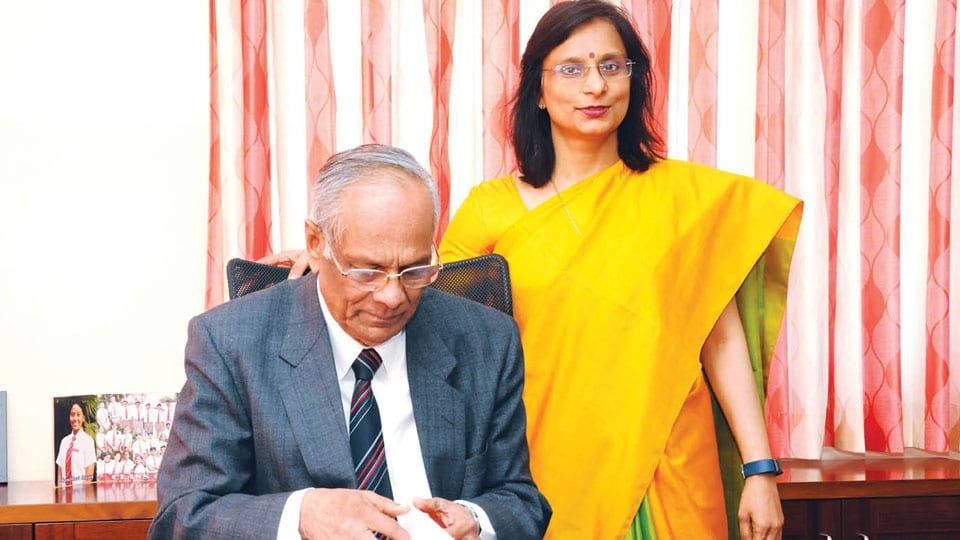
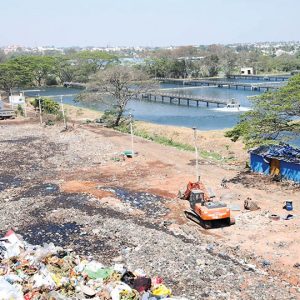
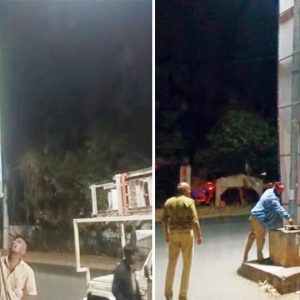
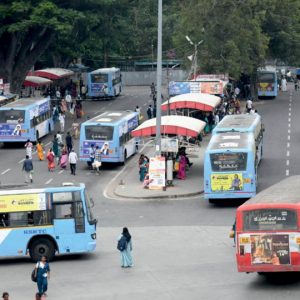
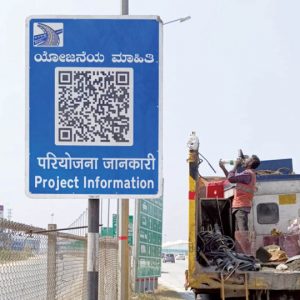
Recent Comments